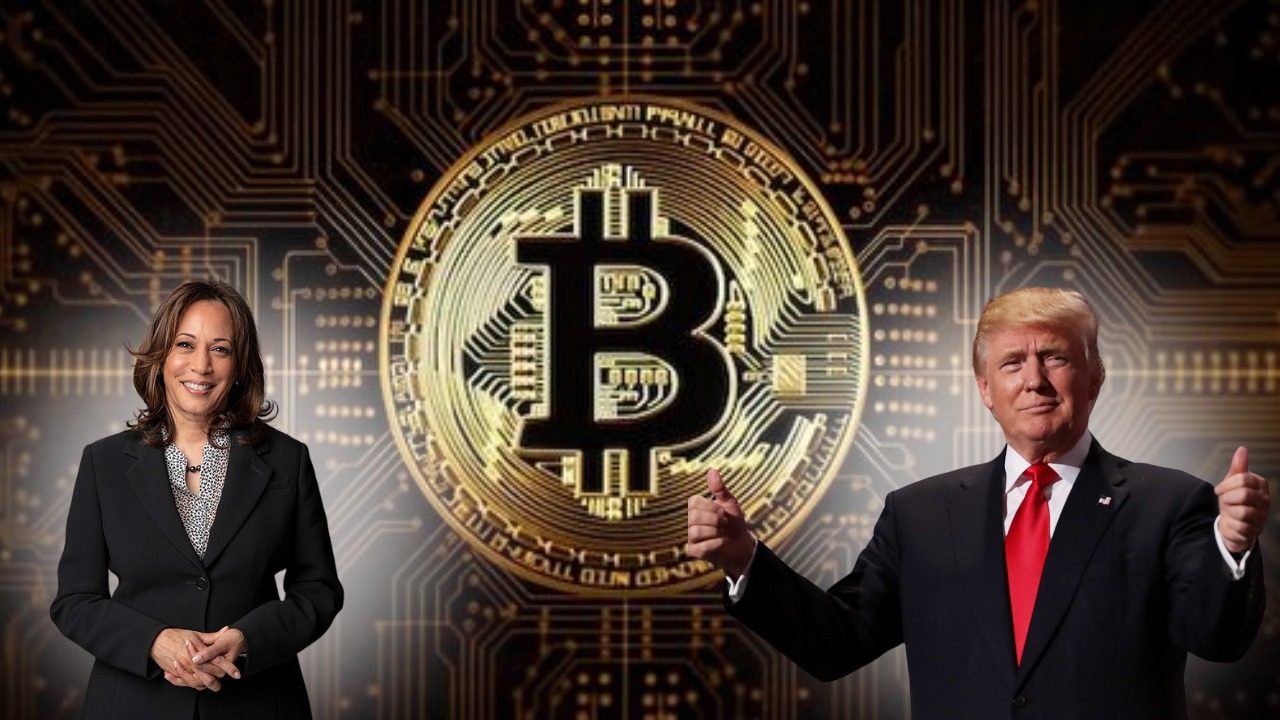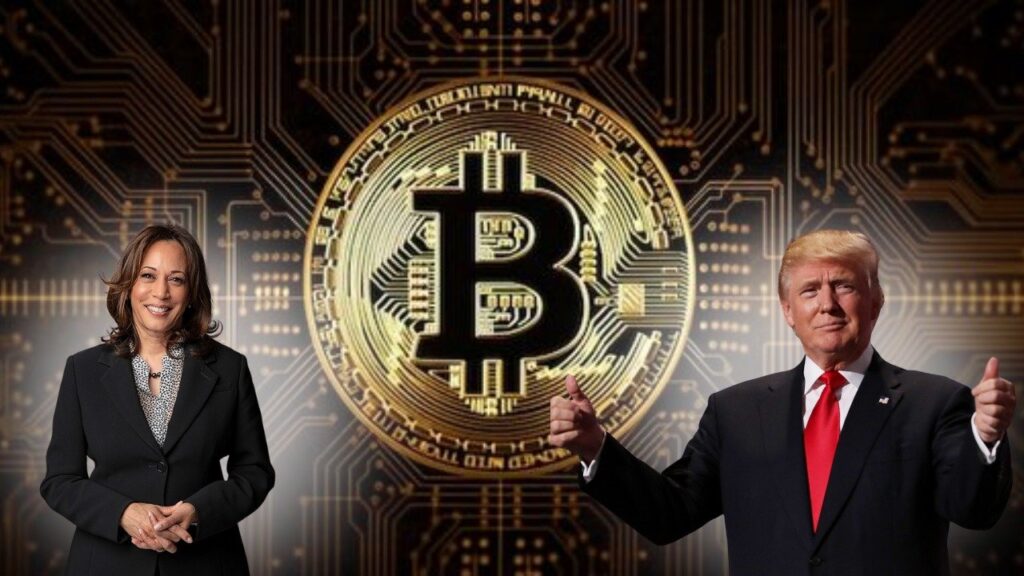
The 2024 United States presidential election, a highly anticipated and contentious event, has left a notable mark on the financial landscape, particularly within the cryptocurrency market. With the results now final, the impact of the election is being felt by investors, policymakers, and industry leaders alike. The direction in which the market is heading could be shaped by the policies and regulatory frameworks put forth by the new administration.
A Divided Political Climate and Its Effect on Crypto
The 2024 election cycle saw a polarized political climate, where digital currencies and blockchain technologies were central to debates on economic innovation, privacy rights, and national security. As the results settled, crypto enthusiasts and skeptics alike began to assess the implications of the outcome. The presidential race pitted candidates with differing views on digital assets—one advocating for a more regulatory-friendly approach and another pushing for tighter controls due to concerns over financial instability and illicit activity.
The election outcome led to a divided sentiment within the market. On one hand, the victory of a candidate with a pro-crypto stance has sparked optimism among digital asset investors. On the other, the results have led to uncertainty in some sectors as regulatory and tax proposals remain a major concern.
The Pro-Crypto Candidate’s Victory: Boosting Market Confidence
For those in favor of decentralization, the election results offered a sense of relief. The new president’s commitment to fostering innovation in the blockchain space, lowering tax burdens on crypto businesses, and clarifying regulatory frameworks for digital assets resulted in an immediate uptick in market sentiment. Bitcoin (BTC) and Ethereum (ETH) saw sharp gains, with prices rising by nearly 15% in the first 48 hours following the announcement of the election outcome.
The pro-crypto stance was largely centered around the idea that the digital economy can be a driving force for economic growth. The president’s plans for embracing blockchain-based applications for government services, such as voting, healthcare, and financial transactions, were seen as transformative. This vision of mass adoption helped boost market confidence that cryptocurrency would play a central role in the future of the U.S. economy.
Key Market Reactions:
– Bitcoin: surged past the $45,000 mark, its highest price in nearly six months, with a 12% increase in trading volume.
– Ethereum: saw similar upward movement, breaking past $3,200, as optimism about the potential for decentralized finance (DeFi) to integrate with national financial systems reached new heights.
– Altcoins: particularly privacy-focused tokens and Layer-2 solutions, rallied in anticipation of regulatory clarity that could favor smaller projects and innovation.
The Regulatory Pushback: A Cloud of Uncertainty
Despite the bullish sentiment among crypto investors, the election results also brought to the forefront significant concerns over regulation. A portion of the opposition party, which had gained ground in Congress, remains skeptical of cryptocurrencies. Concerns about their volatility, use in illicit activities, and their potential to disrupt traditional banking systems have led to calls for stricter oversight.
A possible outcome is the introduction of new tax policies and capital gains requirements, alongside measures to limit crypto’s appeal to retail investors. These potential restrictions would focus on curbing speculative trading and the growing popularity of decentralized finance, which some policymakers view as a threat to the financial stability of the traditional banking system.
While the administration’s pro-crypto policies are expected to prioritize innovation and job creation, the balance between nurturing growth and preventing risk will be a delicate one. Some of the most contentious debates include:
– The Securities and Exchange Commission (SEC): With the election results, there is now an expectation that the SEC might take a more balanced approach to regulating crypto assets. However, some market players fear that aggressive enforcement actions could limit market activity, particularly for decentralized exchanges and Initial Coin Offerings (ICOs).
– Stablecoin Regulation: Another area of focus will likely be the regulation of stablecoins. Proposals to introduce central bank digital currencies (CBDCs) could lead to a regulatory showdown between private stablecoin issuers and government-backed digital currencies. The election’s impact on this issue will likely define the future of stablecoins in the U.S.
– Environmental Concerns: Energy usage in crypto mining, particularly in proof-of-work networks like Bitcoin, could also become a point of contention, as the new administration is expected to push for greener technologies and sustainability measures.
The Global Perspective: A Ripple Effect
The U.S. election results have reverberated globally, as the United States remains the world’s largest economy and a key player in crypto regulation. Countries that had been waiting to see how the U.S. would handle crypto policy are now in the process of adjusting their own strategies. Some are likely to follow suit with more pro-crypto policies, while others may introduce stricter laws to limit the influence of digital currencies on their domestic markets.
Impact on Global Crypto Markets:
– In Europe, there is already growing momentum behind the European Union’s Markets in Crypto Assets (MiCA) framework, and the U.S. election results are likely to influence EU leaders’ commitment to balancing innovation with regulation.
– In Asia, countries like China and India, with their own varying degrees of crypto acceptance, are closely monitoring U.S. policies to determine their next moves. A positive regulatory environment in the U.S. could spur more investments into Asian markets, especially in countries with crypto-friendly policies.
How Indian Market is been affected:
“The US election result looks to significantly impact the VDA market. Victory of pro-VDA candidates would strengthen the call for a supportive regulatory framework, which may encourage more institutional investment and innovation in the industry.
At Bharat Web3 Association, we advocate for supportive policies, believing that they will help stabilize the market and promote the adoption of Web3 technologies”, Stated by Dilip Chenoy, Chairperson of Bharat Web3 Association.
“The crypto market has been buzzing with anticipation as the U.S. presidential election approaches, with Bitcoin and Ethereum facing slight declines. However, Dogecoin has surged impressively by 7.26%, driven by renewed investor interest and positive sentiment surrounding its community. This uptick highlights a growing interest in cryptocurrencies among younger and more diverse voters, especially as candidates Kamala Harris and Donald Trump embrace pro-crypto policies. As political discussions evolve, market analysts predict that favorable election outcomes could lead to increased institutional investment and a more robust regulatory environment.” Stated by Mr. Shivam Thakral, CEO of BuyUcoin
“The 2024 U.S. presidential election could impact the cryptocurrency market differently in the short term and in the long term. Different candidates have varying regulatory stances on cryptocurrency, which may lead to market volatility. In the short term, if the elected candidate is supportive of crypto, it could boost market confidence and surge market price. However, in the long term, it can help in framing balanced regulation surrounding crypto to reduce market volatility.
The uncertainty surrounding the election outcome could trigger market fluctuations. Investors should closely monitor election developments and market reactions and be prepared to manage risks accordingly.” Stated by Ryan Lee, Chief Analyst at Bitget Research
Has the new era started?
The results of the 2024 U.S. presidential election have brought both hope and concern to the cryptocurrency market. While the path to full mainstream adoption of digital assets is still fraught with challenges, the prospect of a more supportive regulatory environment is encouraging to many.
However, as the U.S. navigates the delicate balance between fostering innovation and ensuring financial stability, the global crypto market will continue to evolve. Investors, developers, and policymakers will need to remain agile in order to capitalize on the potential growth of blockchain technologies while managing the risks that come with uncertainty.
As the dust settles from the election, one thing is clear: cryptocurrency is no longer just a fringe asset but is now firmly in the crosshairs of global political discourse, and its future will be shaped by the outcomes of not just the markets, but by the choices of lawmakers in Washington, D.C.












More Stories
The countdown has started for ISRO’s first satellite launch of 2026 – the PSLV-C62 mission
ISRO’s BlueBird-6 launch postponed to December 21: A Major Development in Global Broadband Connectivity
Introducing Tata Nano EV: India’s Compact Electric Comeback